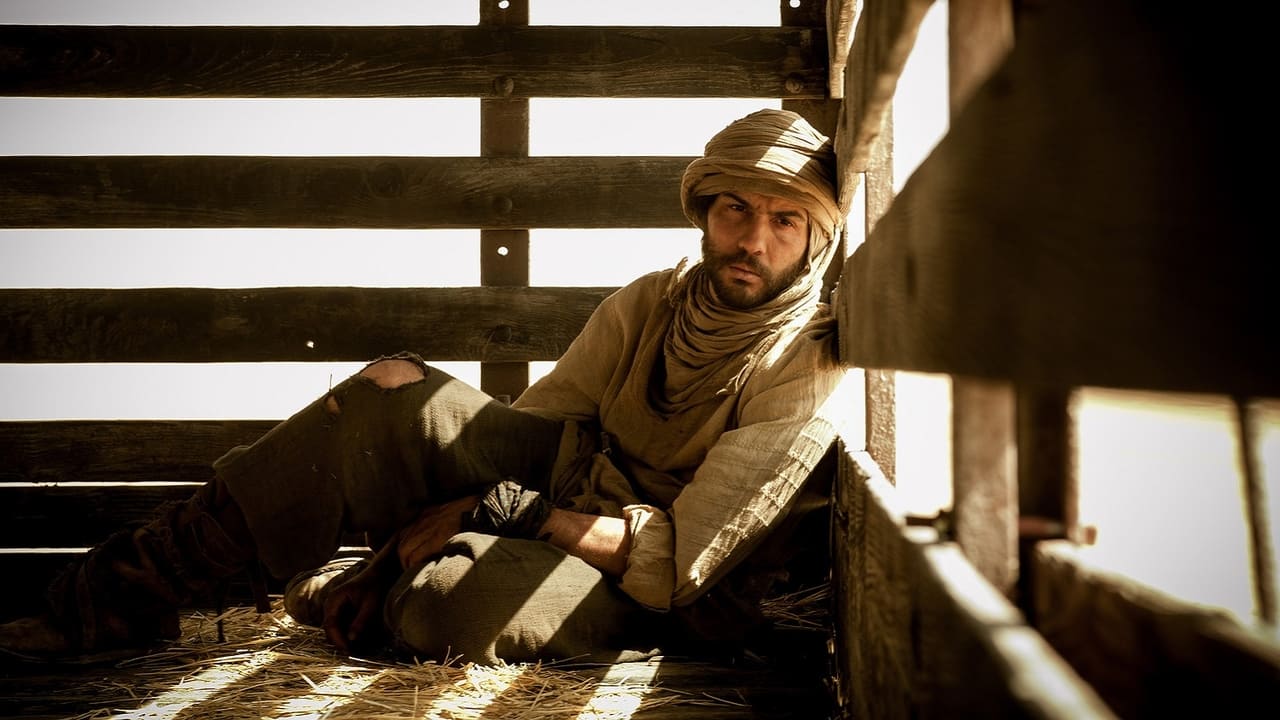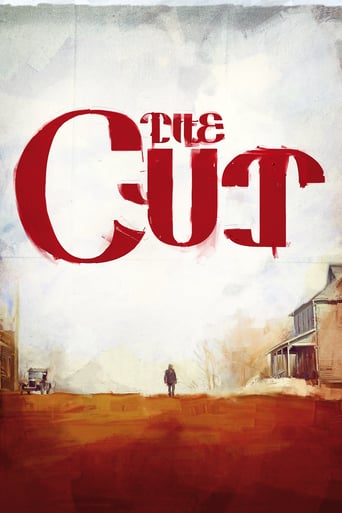



This Movie Can Only Be Described With One Word.
People are voting emotionally.
One of the best movies of the year! Incredible from the beginning to the end.
View MoreThere are moments that feel comical, some horrific, and some downright inspiring but the tonal shifts hardly matter as the end results come to a film that's perfect for this time.
View MoreI'm a little confused by the cool critical reception this received on release in the U.S.. Yes, it's uneven at times, and it's slightly distanced emotionally for an epic historical melodrama about one of the terrible genocides of the 20th century. Yes, it occasionally traffics in clichés, and there are some clunky lines and awkward moments of dubbing.But that is more than offset by spectacular photography, tremendously affecting scenes of horror, loss, sadness, hope, anachronistic but extremely effective music, and an intelligent attempt to deal with not only the Armenian genocide, but what it means to be a refugee, the nature of silence, the complexity of morality in a morally confusing world, and many other themes that raise it above most of the Hollywood historical melodramas we see, including many that win Oscars and are great successes (many of which also traffic in clichés and have some awkward dialogue). If it's not quite as great as the far more personal and quirky films that are the very best of Akin's work; Head-On, The Edge of Heaven, Crossing the Bridge , it's still a thoughtful and intelligent film by one of the most interesting film-makers in the world today.It tells the story of an Armenian who is forced to leave his family and perform slave labor after the Ottoman Empire enters the first world war, and follows him into ever worse layers of personal hell. Rather than trying to capture the scope of the genocide all around him, for a long while we get only hints and glimpses of the horrible larger truth, seeing only those things our character does. It's an intimate experience of genocide. The second act of the film, once the war is over, is our hero's long and winding journey to try and find what might be left of his family. Not the first time such a subject has been dealt with on film, but this does it with an off-beat and almost dreamlike tone, and a meditative pace. I found myself thinking of filmmakers like Lisandro Alonso as much as Steven Spielberg. It's a strong and worthwhile cross between art-house and old school epic melodrama. If you are willing to forgive the occasional lapse, it's very worth seeing.A note of caution: The German blu-ray, while great looking, does not have English subtitles. The film is largely, but not completely in English (English stands in for Armenian), but some crucial scenes are in Turkish or Arabic, with no translations offered - a real problem. On the other hand, the US DVD has the film mostly dubbed into Armenian (which Akin approves of), and completely subtitled in English, which, strangely was more effective in some ways than the English track (and I usually HATE dubbing). But in this case many of the supporting actors clearly are not native English speakers, and the performances get very stiff and off-putting for it at times. When I saw the film a second time, in the Armenian dub with all English subtitles, it actually helped a lot of those performances flow better, and I found the film a more affecting experience overall. However, I wish there was a release that offered both the original English track with subtitles for all other languages (which doesn't seem to exist), AND the Armenian dubbed track with English titles, as on the US DVD. And while I'm at it, I'd like all that on a blu-ray, since this is a beautifully shot film. Sigh...
View MoreAs a retired history teacher, I think I should explain the context for "The Cut". It is set in the Ottoman Empire during the First World War. The Empire is on its last legs, having lasted for many centuries, it's on the losing side in the war and would soon be broken up into many countries. In the meantime, the ruling Turks had many ethnic groups and religions within the empire. During this time, many Christians there were being persecuted...but none more vigorously than the Armenians. These people were despised by the empire and a horrible genocide was committed. Many of the Armenian men were pressed into the army and then literally worked to death. As for most of the women and children, they were herded into vast concentration camps where they were simply not fed or given water and died in the desert heat. Estimates are that in total between 800,000 and 1,500,000 Armenians died during this short period...and the remainder who managed to escape became exiles living abroad. Oddly, while most everyone throughout the world acknowledges that this occurred, still today Turkey denies that this occurred and many of its allies are unwilling to publicly mention it. In light of all this, the collaborative team of Faith Akin (Director and co- writer) and Mardik Martin (co-writer) is quite unusual. Faith is a German of Turkish descent and Mardik is an Armenian-American--a very unlikely pair working to expose the truth.The film begins with Armenian men being pressed into work gangs by the army. Their work is back-breaking and soon you see them die one by one. When they don't die quick enough, the officer in charge orders his men to slit the throats of all the Armenians--no use wasting bullets on them. One of the men forced to kill has a conscience and has a hard time getting himself to kill one of the prisoners. At gunpoint, he finally stabs the man in the throat...but it isn't fatal and the soldiers assume the Armenian is dead. However, Nazaret is only gravely wounded and eventually the man who stabbed him returns to help him escape. Unfortunately, Nazaret is left mute--unable to talk because of the wound. Throughout the rest of the film, Nazaret slowly searches for his family and his journey takes him from Turkey to the Middle East to Cuba and eventually to the Dakotas in the United States! Is he able to find any of his family or were they simply liquidated like most of his people?This is a very well made and, at times, extremely unpleasant movie. This is not a complaint. After all, you cannot make genocide a happy thing and, like Schindler's List, it's often rather depressing and harrowing. This is certainly not a film for children--they can always watch it when they're older and if you do let them see it, by all means watch it with them. Once you get through the sad and awful parts in the first part of the film, you'll find that it's a bit easier to watch. My only reason for not scoring it a bit higher is because of two minor problems. First, you can tell that the film was made on a limited budget and many of the scenes should have been much larger in scope and had more actors, didn't. As examples, the death camp scene and the portion with the army forcing the Armenians to work themselves to death only had a tiny number of actors--only a few dozen at most. Additionally, at times the film is a bit slow-- particularly during the second half. Neither of these things, however, are serious problems and the film is worth seeing and as well as finely crafted. Excellent direction and a sprawling, epic quality, along with an important subject matter, make this a truly memorable viewing experience.
View MoreTahir Rahim ('A Prophet') stars as Nazarat an Armenian artisan in the town of Mardin. World War I is raging and the Ottoman Turks have thrown in their lot with the forces of Germany and her allies. In Turkey a decision is made to do something about the Christian Armenians. Nazarat is rounded up and forced to work as slave labour – leaving his wife and twin daughters alone to their fate.What befalls him is horrific and what befell the Armenians was a war crime and a crime against humanity. In the aftermath of his travails Nazarat hears that his daughters have survived the blood bath, he then sets out to find them and the majority of the film is taken up with his search.Now this is a fairly good effort, it is a bit shameless at tugging on the heart strings though. It was a wide European co-production and that is reflected in the languages being used. The main language though is English, which is used by most of the players here. That may be why it has faced criticism of some of the acting. That criticism is that some of it was a bit hammy or wooden. It is harder to act in a non native tongue so a lot of the nuances are lost. Rahim is as ever excellent and believable and as a central character to the film he manages to hold it all together very well. There are some plot holes and I could not find if this was based on an actual real story. However, it is fairly engaging and with a run time of around two hours managed to keep me gripped for the most part hence my rating.
View MoreA true masterpiece!Liked it a lot!Faith Akin - unique as always.I would say that "The cut" is one of his best films.Very hard to watch it on some points - kind of painful - the armenian genocide is historical fact.Very good scenario and actors!Definitely one of the best movies, which i have watched this year.Highly recommend "The Cut" to everyone who wants to understand what the real cinema is!Gave 9 to the movie and i think this movie absolutely deserved it.
View More